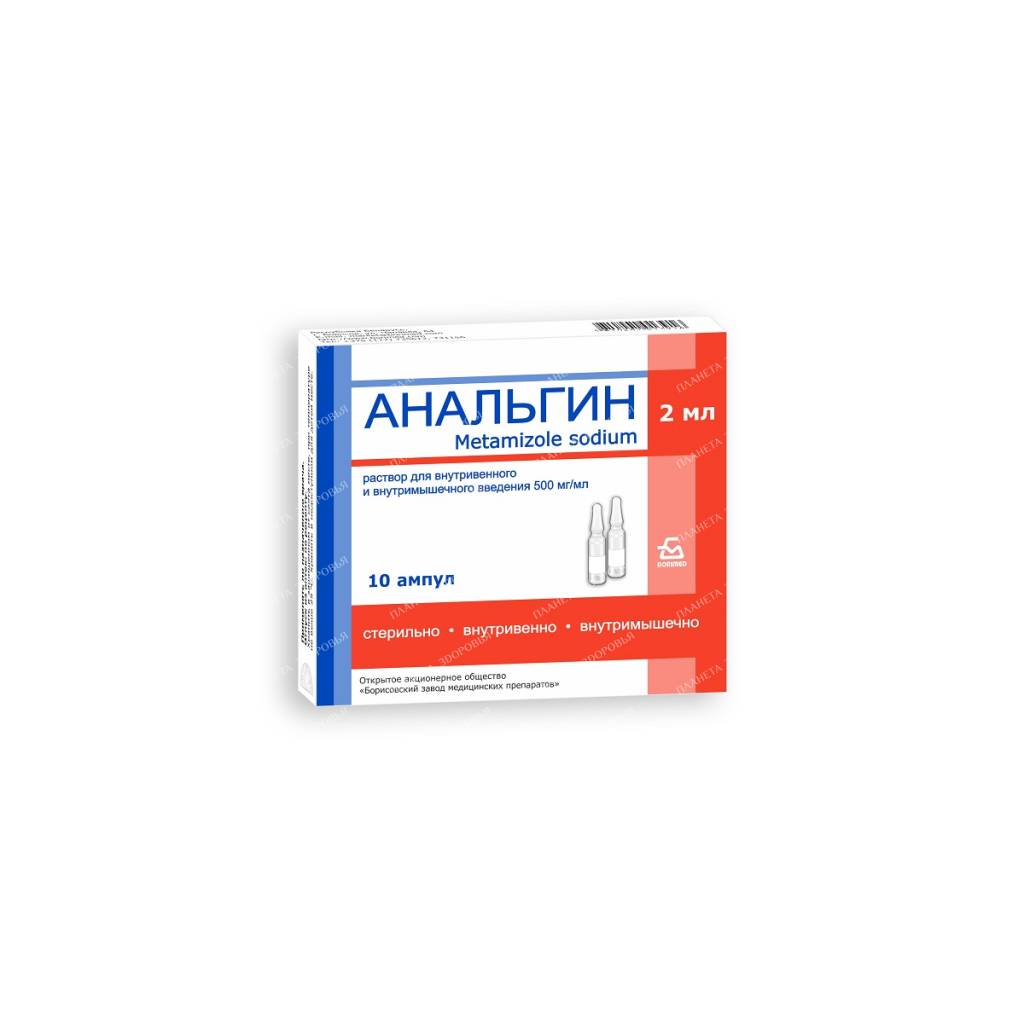Analgin Injection: Powerful Pain Relief for Intravenous & Intramuscular Administration
Find relief from acute pain with Analgin injection, a potent analgesic available in a convenient 2 ml ampoule pack. This comprehensive guide provides detailed information about Analgin, its uses, and important considerations for safe and effective use.
Product Description:
- Analgin solution for IV and IM injection. 500 mg/ml in amp. 2 ml in pack No. 10
- Composition: Each 2 ml ampoule contains 1000 mg metamizole sodium (active ingredient) and water for injection (excipient).
- Appearance: Transparent, yellowish liquid.
Understanding Analgin:
Analgin, also known as metamizole sodium, is a pyrazolone derivative with potent analgesic, antipyretic, and mild antispasmodic properties. It effectively relieves pain and reduces fever, making it a valuable option for a wide range of conditions.
How Analgin Works:
While the exact mechanism of action isn't fully understood, research suggests Analgin acts both centrally and peripherally. It is rapidly absorbed into the bloodstream after intramuscular administration and metabolized in the liver to form active metabolites.
Uses of Analgin Injection:
Analgin injection is indicated for:
- Acute pain after injury or surgery
- Renal and hepatic colic (in combination with antispasmodics)
- Tumor-related pain
- Other acute and chronic intense pain when other treatments are ineffective
- Fever, when other measures fail
Important Considerations:
Contraindications:
Analgin is contraindicated in the following situations:
- Hypersensitivity to the active ingredient or other pyrazolone/pyrazolidine derivatives
- History of aspirin asthma or analgesic intolerance syndrome
- Bone marrow suppression
- Genetic deficiency of glucose-6-phosphate dehydrogenase
- Acute intermittent hepatic porphyria
- Arterial hypotension and/or unstable hemodynamics
- Last trimester of pregnancy
- Breastfeeding
- Newborns and children under 3 months of age or weighing less than 5 kg
- Children aged 3 months to 11 months for intravenous administration
Precautions:
- Prolonged alcohol abuse
- Intravenous administration to patients with systolic blood pressure below 100 mm Hg or unstable blood circulation
Potential Side Effects:
Analgin can cause various side effects, ranging from mild to serious. Some of the most common include:
- Blood and lymphatic system: Leukopenia, agranulocytosis (rare but life-threatening), thrombocytopenia, aplastic anemia, pancytopenia
- Immune system: Anaphylactic/anaphylactoid reactions, “aspirin” asthma, anaphylactic shock
- Cardiovascular system: Hypotensive reactions
- Skin and subcutaneous tissue: Fixed erythema, rash, Stevens-Johnson syndrome, toxic epidermal necrolysis
- Kidneys and urinary tract: Deterioration in kidney function, proteinuria, oligo- or anuria, acute renal failure, acute interstitial nephritis
- General diseases and injection site reactions: Red color of urine
Safe and Effective Use of Analgin Injection:
- Strict adherence to prescribed dosage is essential.
- Close monitoring for potential side effects is crucial.
- Discontinuation of use is necessary if any adverse reactions occur.
- Consult your doctor if you experience any unusual symptoms during treatment.
Dosage and Administration:
The dosage and administration of Analgin injection should be strictly as prescribed by your doctor.
Storage:
Store Analgin injection in a place protected from light, at a temperature not exceeding 25°C. Keep it out of the reach of children.
Expiration:
Do not use the medicine after the expiration date.
Availability:
Analgin injection is available by prescription only.
Conclusion:
Analgin injection provides a potent solution for acute pain relief. It's essential to use it responsibly, understanding its potential benefits and risks. Always consult with your doctor before using this medication, especially if you have any pre-existing medical conditions or are taking other medications.





